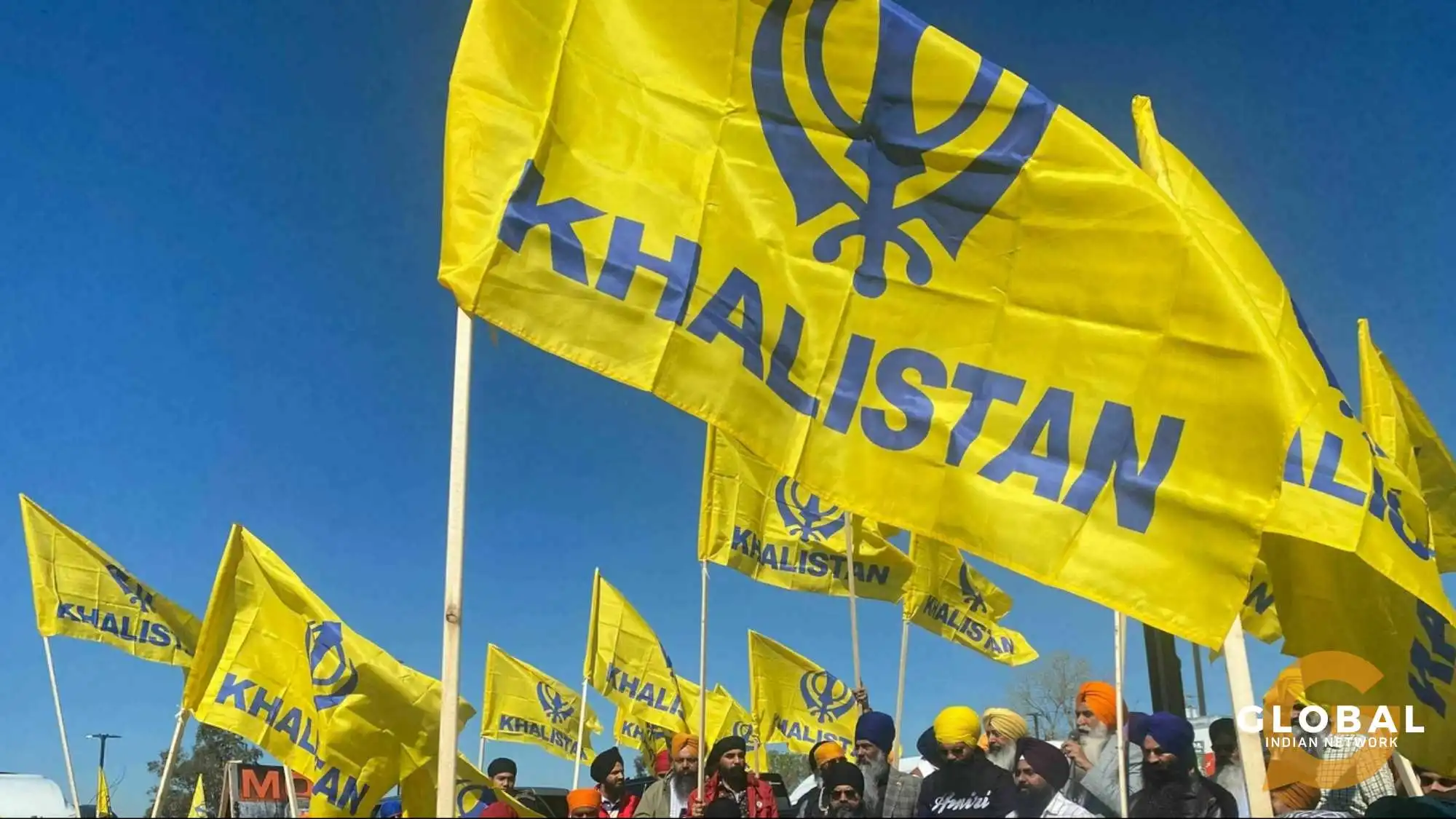The Khalistan Referendum 2024 has become a significant talking point for Sikh diaspora communities, raising questions about identity, autonomy, and aspirations for an independent Sikh-majority nation. This non-binding referendum, organized by the group Sikhs for Justice (SFJ), seeks to gather global Sikh sentiment regarding the establishment of Khalistan, a separate state carved out from the Indian state of Punjab. While the referendum itself does not carry any legal weight, the consequences can be felt across the Sikh diaspora worldwide. This blog discusses the potential consequences of the movement and its impact on a global scale.
Table of Contents
The Background and Motivations for the Khalistan Referendum 2024
The Khalistan movement is a separatist movement that seeks to create an independent Sikh state called “Khalistan” in the Punjab region of India. Its origins can be traced back to the historical grievances of Sikhs during and after British colonial rule, with dissatisfaction over political, economic, and social issues that persisted into the post-independence period. Tensions particularly escalated in the 1970s and 1980s, driven by demands for greater autonomy for Punjab and resentment towards the central government.
The movement gained significant momentum with the rise of Jarnail Singh Bhindranwale, a Sikh militant who gained immense popularity. Bhindrawale and his followers caused huge mayhem in Punjab, with several killings and violent incidents. The conflict between Sikh militants and the Central Government reached its peak in 1984 with Operation Blue Star, a military action ordered by the Indian government to remove Bhindrawale and other militants from the Golden Temple in Amritsar, leading to hundreds of casualties.
This operation led to a deep sense of anger and resentment among Sikhs, especially due to the temple’s damage. The assassination of Prime Minister Indira Gandhi by her Sikh bodyguards later that year triggered anti-Sikh riots across India, resulting in thousands of deaths and further fueling the call for Khalistan among certain sections of the Sikh diaspora.
Throughout the 1980s and early 1990s, Punjab witnessed significant violence due to insurgency and counter-insurgency operations. This also featured the terrorist attack on an Air India flight from Montreal to India in 1985, which was blown up by militants and remains Canada’s worst terror attack ever. The Indian government eventually subdued much of the militant activity, and the movement lost momentum domestically.
However, it retained some support among segments of the Sikh diaspora in countries like Canada, the United States, and the United Kingdom, where calls for Khalistan continued. The movement remains a sensitive issue in India. Still, today, the movement is far less influential domestically but resurfaces in global discourse due to rallies, activism, and occasional tensions between diaspora groups and the Indian government.

Sikhs for Justice Organisation
Recently, the organization ‘Sikhs for Justice’ has been the foremost propagator for Khalistan. The organization was formed in 20017 by Gurpatwant Singh Pannun, a lawyer by profession. However, the SFJ was banned by India in 2019 for “espousing secessionism and militant activities“. Since then, the organization has gained momentum in countries like Canada, the USA, the UK and Switzerland.
In 2018 and 2020, the group pushed for a referendum at the global level to form a separate country for Sikhs, pushing for the idea that an independent Khalistan would represent a form of justice and self-determination for Sikhs. For them, the independence referendum embodies the democratic tool to let the 500-year-old religion have a voice in shaping its future without being constrained by the politics of the Indian government. The planned Khalistan Referendum 2024 was planned to be conducted in major cities across the globe.
Global Reach
Despite being banned by India, the SFJ set up an independent Punjab Referendum Commission to organize a series of non-binding referendums. The eventual plan was to present the results of the polls to the United Nations and demand a separate state. The supporters of the referendum argue that Sikhs are targets of discrimination and need an independent Sikh-majority state, Khalistan. The non-binding Khalistan Referendum 2024 has gained traction, especially in regions with significant Sikh populations, such as Canada and California in the United States.
Canada, with its substantial Sikh diaspora, has seen referendum votes taking place across various cities despite security concerns and tensions with the Indian government. These include Brampton in Ontario and Surrey in British Columbia. The presence of pro-Khalistan advocacy in Canada has even strained diplomatic ties, highlighted by incidents such as the killing of Hardeep Singh Nijjar, a prominent pro-Khalistan activist in British Columbia. Canadian Prime Minister Justin Trudeau publicly expressed concerns about the incident, further complicating relations between the Canadian government and India.
In the United States, the referendum saw participation in cities like San Francisco and Sacramento on 28th January 2024 and 31st March 2024, respectively, where voting processes were held at neutral sites such as community rentals and voting halls. These events have attracted media attention and public interest, turning them into a historic vote for many Sikhs seeking recognition of their aspirations. As a U.S.-based group, the SFJ has managed to gather considerable support in these diaspora communities, emphasizing their role in advocating for an independent nation through peaceful means.
Furthermore, worldwide elections were held in Italy, Switzerland, Australia, and the United Kingdom. Each of these polling locations attracted tens of thousands of voters, and while the results have not been declared yet, the organization claims that over 200,000 people have participated.
Impact on India-Canada Relations
The referendum has had broader geopolitical implications, notably impacting India’s diplomatic relations with Canada and other Western nations where voting occurred. The Indian government has accused the SFJ and other organizers of fostering a separatist agenda and has sought to curtail such movements abroad. The tensions peaked following Justin Trudeau’s allegations about India’s involvement in Nijjar’s death, which India vehemently denied. These claims have sparked a diplomatic row, with India suspending visa services for Canadian nationals and both nations expelling diplomats.

In another incident that led to international tension, FBI documents from last year revealed that an Indian government employee had hired a man to assassinate a Sikh referendum organizer, who was a US citizen. While the Indian government denied any involvement and said that the agent acted alone, there was significant tension on the global scene. Sikhs who argue for the referendum believe that they have faced repression from India for decades and now must raise their voice through the ballot. If the Khalistan referendum 2024 is successful, then the SFJ plans to organize a referendum within Punjab itself in 2025, hoping that a domestic referendum draws enough international pressure.
Furthermore, India’s concerns also reflect the potential influence of the Khalistan Referendum 2024 on domestic affairs. The rise of Sikh activism in the diaspora has been perceived as a challenge to India’s territorial integrity, leading to a crackdown on pro-Khalistan activities within its borders. The nationalist government under Narendra Modi has maintained a strict stance against any moves towards separatism, citing security concerns and the importance of national unity.
Perspective of the Sikh Diaspora
For many in the Sikh diaspora, especially Canadian citizens and American citizens, the Khalistan Referendum 2024 is not just about a political statement but a profound expression of identity and cultural heritage. The vote has seen participation from a range of individuals, including Punjabi-speaking Sikh volunteers who have dedicated their time to ensuring that the referendum reaches as many Sikhs as possible.
Despite its nonbinding nature, the referendum offers a chance for these communities to feel a sense of agency and visibility in global politics. While the Indian government has called for a ban, the supporters of the democratic referendum argue that it would provide a peaceful solution to the violence that has plagued the state of Punjab since 1984.
However, the movement has not been without its controversies. The referendum rules and processes have faced scrutiny, with critics questioning the credible evidence behind some of the claims made by organizers. Additionally, the issue has exposed deep divisions within the Sikh community itself, with many opposing the call for Khalistan due to concerns over its viability and the risks of reigniting regional tensions.
What the Khalistan Referendum 2024 Means for the Future
As the Khalistan referendum 2024 continues to play out in various phases, its ultimate impact remains uncertain. While it has succeeded in mobilizing a segment of the Sikh diaspora, the pathway to achieving a recognized independent Sikh-majority nation is fraught with challenges, especially given the lack of support. The Indian government’s stance against any recognition of the referendum ensures that the issue will remain a contentious point in international diplomacy.
Yet, for those advocating for Khalistan, the referendum is seen as a vital step in a broader struggle for self-determination. As more votes are cast in the Khalistan referendum 2024, it symbolizes a continued effort to keep the aspirations of an independent Khalistan alive, even if its practical realization remains distant.
Conclusion
In conclusion, while the Khalistan Referendum 2024 remains a deeply polarizing subject, its significance to Sikh communities worldwide cannot be ignored. It remains to be seen how this movement will shape the future of the Sikh diaspora and its relationship with both India and the rest of the world, but one thing is certain: the debate over Khalistan will continue to shape discussions about autonomy, identity, and justice for years to come.










